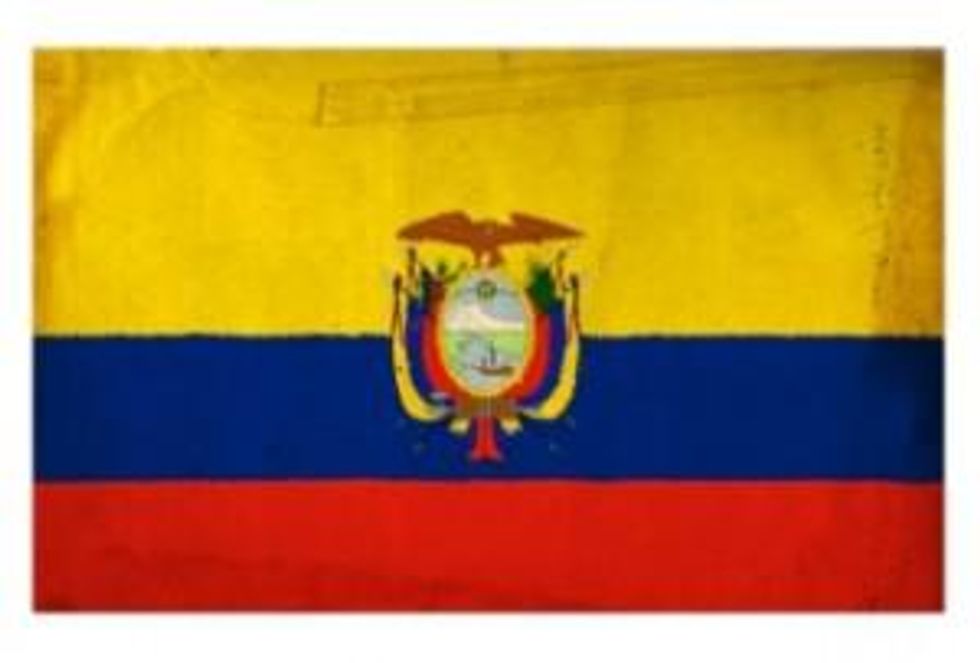Kinross Scraps Fruta del Norte as Ecuador Votes on Mining Reforms
Kinross Gold is dumping its huge Fruta del Norte project in Ecuador just as the country is poised to pass mining reforms designed to attract new investment.
“We have said that we will exert strict capital discipline across our Company, that we will allocate our capital only to projects which meet our investment criteria, and that we will only enter into agreements that are in the best interests of the Company and its shareholders,” CEO J. Paul Rollinson said in the statement. “After a great deal of effort to arrive at a mutually agreeable outcome, it is unfortunate that the parties were unable to reach an agreement on FDN which would have met those criteria.”
The news caused Kinross shares to slide on the Toronto and New York exchanges; the stock closed at $6.03 in Toronto, down 6.37 percent.
The scrapping of the project must indeed come as a disappointment for Kinross, which previously called FDN “one of the most exciting gold discoveries of the past 15 years,” Mineweb reported. Discovered in 2006 and acquired by Kinross in 2009 when it paid Aurelian Resources $1.2 billion for it, the deposit hosts 6.7 million proven and probable ounces of gold, and 9 million oz proven and probable silver.
What is more, “the government has also indicated it will not support efforts by Kinross to solicit a potential new partner or a buyer,” the press release states, nor extend the economic evaluation phase of the project beyond August 1. That means that Kinross expects to take a $720 million charge on the project in the second quarter, which according to Mineweb, will be the second major charge that Kinross has had to take under the leadership of former CEO Tye Burt. The first was a $3 billion impairment charge taken in 2012 on its Tasiast gold mine in Mauritania, which Kinross acquired for $7.1 billion.
The news on Fruta del Norte comes on the same day that Ecuador is proposing changes to its 2009 mining law.
Ecuador Times reported that the National Assembly of Ecuador debated and was scheduled to vote Tuesday on mining legislation and taxation reform.
The reforms are meant to attract more mining investment into Ecuador, whose largely unexplored metals deposits are worth $220 billion, containing more than 39 million ounces of gold reserves and 8 million metric tons of copper, according to Ecuador’s mining chamber.
Mining Weekly reported in May that Ecuador’s Socialist president Rafael Correa, who was re-elected in February, wants to reduce the country’s dependence on oil exports.
“We’ve sent a bill labeled as urgent … it contains the reforms to the mining law. Our mining law is very good, but we made some mistakes and it was too strong in some aspects and there were not as many investments as we expected,” Correa told reporters.
Hanging in the balance is the now-defunct Fruta del Norte project and the country’s first large-scale mining contract between the government and Chinese-owned Ecuacorriente, which plans to invest $1.4-billion in the El Mirador copper project, slated for production in 2015.
“The government has said the agreements with Ecuacorriente and Kinross would be a model for future deals, which should allow Ecuador to develop a large mining industry,” according to Mining Weekly. Hence the push for mining law reform.
One of the reforms would delay delay the coming into force of a windfall tax until miners recover their investments. A second reform would set an 8 percent maximum on mining royalties, which are currently set at a minimum 5 percent with no maximum. Artisinal miners would also be banned from using mercury, a health and environmental hazard, to extract gold.
While those would appear positive for mining, “mining companies contend their profit margins would still be very low after taxes and royalties,” reported Mineweb. BN Americas went further in that assertion, writing on Tuesday that the decision by Kinross not to develop Fruta del Norte was mainly due to the windfall tax.
The publication quotes Dominic Channer, Kinross VP in Ecuador, as saying that the high percentage of the tax and that it is based on revenues makes the tax an impediment to large-scale mining.
“[Kinross CEO J. Paul] Rollinson has made it clear to our shareholders that he will not accept a 70% windfall tax,” Channer said.
The mining reforms law requires 70 votes of the 137 in the Assembly to pass, and observers say the ruling party should not have difficulty getting the bill through, since it has 100 seats, reported Fox Business News.
Securities Disclosure: I, Andrew Topf, hold no direct investment interest in any company mentioned in this article.






